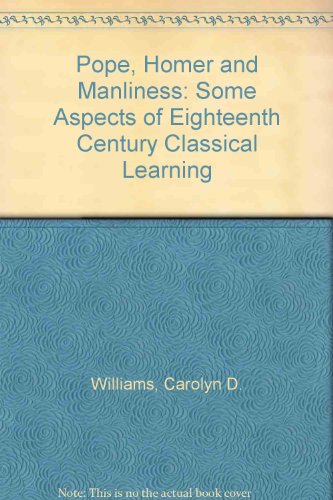Routledge Library Editions: Homer
1 total work
The conflict between masculine and feminine values in 18th century classical learning is problematic and controversial. In this book, Pope's Homer becomes a richly complex focus for new, gendered explorations into the nature of the masculine "rule". As the subject of this gendered reading, Pope's Homer emerges as the fissured relic of a struggle to preserve masculine dignity from the encroachments of feminine characters and values within the text, and of female readers and critics. This text brings a fresh viewpoint and much detailed research on classical and early modern literature to bear on gender studies' central issues, revealing that "masculinity" must here be seen not as an absolute standard, but as the product of unceasing conflict between competing and unstable models.
